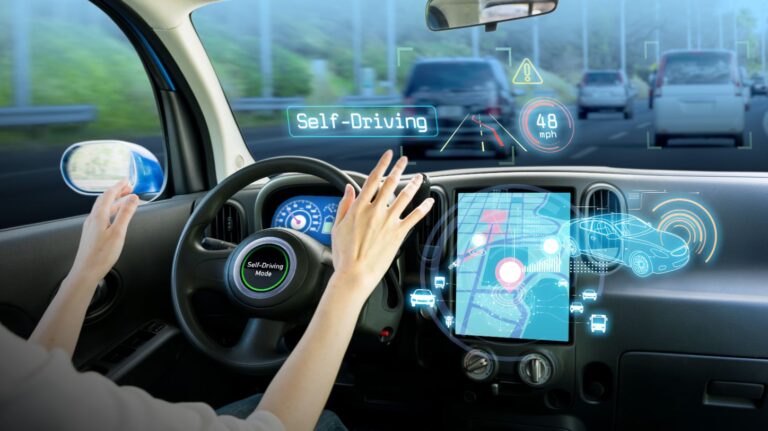The Society of Motor Manufacturers and Traders (SMMT) has urged the UK government to fast-track its proposed Automated Vehicles (AV) Bill and ensure its swift passage into law.
The AV Bill streamlines regulation surrounding automated vehicle safety checks, potentially unlocking safety and economic benefits of self-driving passenger cars and public transport services.
The tech, which reduces the risk of human error, could save an additional 3,200 lives and prevent 53,000 serious accidents, from now until 2040, with a £38bn economic boost.
Even if the current timetable is met, following the Bill’s second reading in the House of Commons in early March, we are unlikely to see self-driving vehicles on British roads until at least 2026.
But should the legislation be delayed until after the general election, that date is likely to be nearer to 2030, putting the UK at a significant disadvantage reports SMTT.
SMTT also suggest that with the EU and US already having regulatory frameworks in place, deploying the tech on public roads now, the UK market could be at risk of falling behind if legislation is stalled.
This risk, despite the UK government and industry jointly investing more than £600m in self-driving vehicle trials since 2015, could destabilise the fledging industry before it gains global renown and market share.
READ MORE: Sunderland introduces SAMS, a new self-driving bus project
To this end, SMMT commissioned YouGov to conduct research into the public opinion of the AV Bill.
The study concluded that nearly a third of adults (29%) would use an automated bus, shuttle or taxi service if available today, with 26% likely to try self-driving features in a personal car.
The poll also found that young people are even keener, with 18-27 year-olds 34% as likely to try a personal car with self-driving features than 60-78 year-olds (18%).
Existing technologies such as Adaptive Cruise Control and Park Assist, the most popular Advanced Driver Assistance Systems among survey respondents, are already in use in manual vehicles.
Advanced Emergency Braking technology, for example, is now available on eight-in-10 new cars and has led to a 38% reduction in rear-end crashes.
Reduced stress of driving, safer journeys and potentially lower insurance costs were listed as the top three benefits of a self-driving car.
For self-driving passenger services such as a bus, shuttle or taxi, consumers were most motivated by the prospect of lower fares, better availability in rural areas and safer journeys.
READ MORE: New online data platform shows link between deprivation and road casualties
SMMT chief executive, Mike Hawes, said, “Backing the AV Bill now is fundamental if Britain is to not only develop but deploy self-driving passenger cars and services.
“We have the foundations, but other major markets are stealing a march, with regulation already in place allowing them to benefit from UK-developed self-driving tech that cannot be rolled out here.
“Any further delay risks leaving Britain in the slow lane, jeopardising our competitiveness and holding back the significant safety and economic rewards self-driving technology can deliver.”
Achievements and innovations in automated driving solutions and road safety will be celebrated at the third annual CiTTi Awards, which will be held on 26 November 2024 at De Vere Grand Connaught Rooms in London. Nominations are open now! Please visit www.cittiawards.co.uk to learn more about this unmissable event for the UK’s transportation sector.





